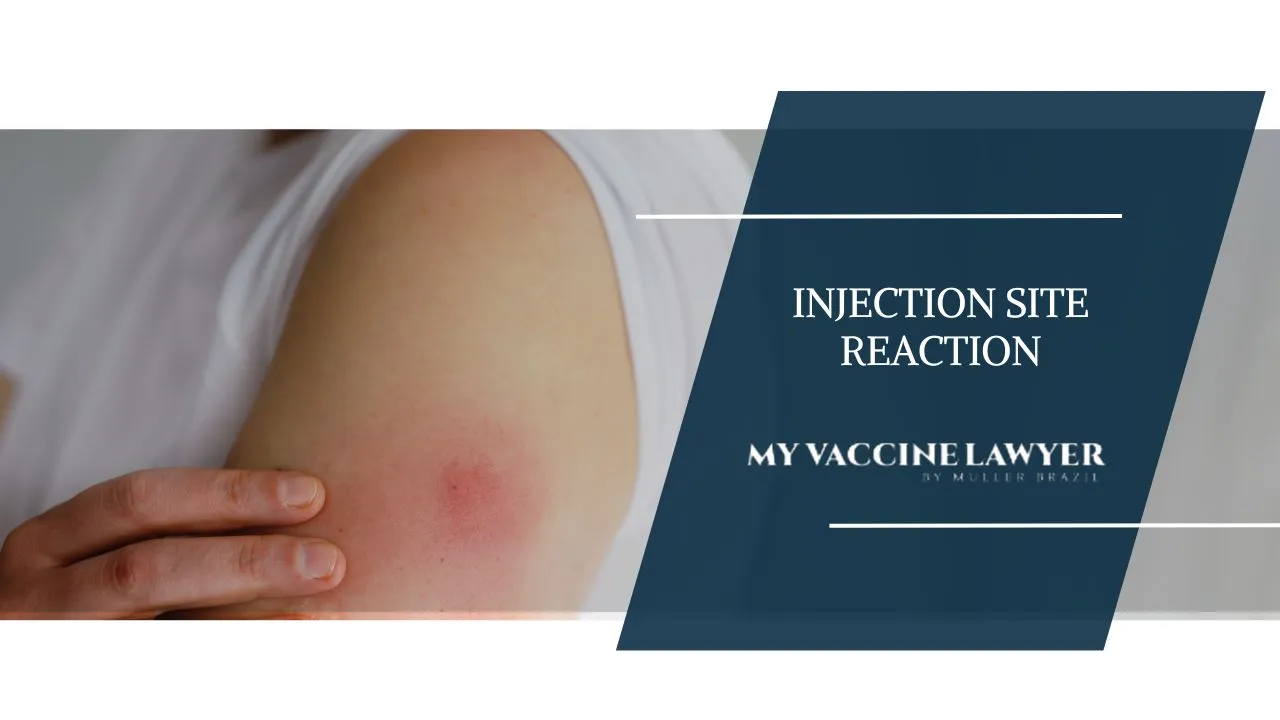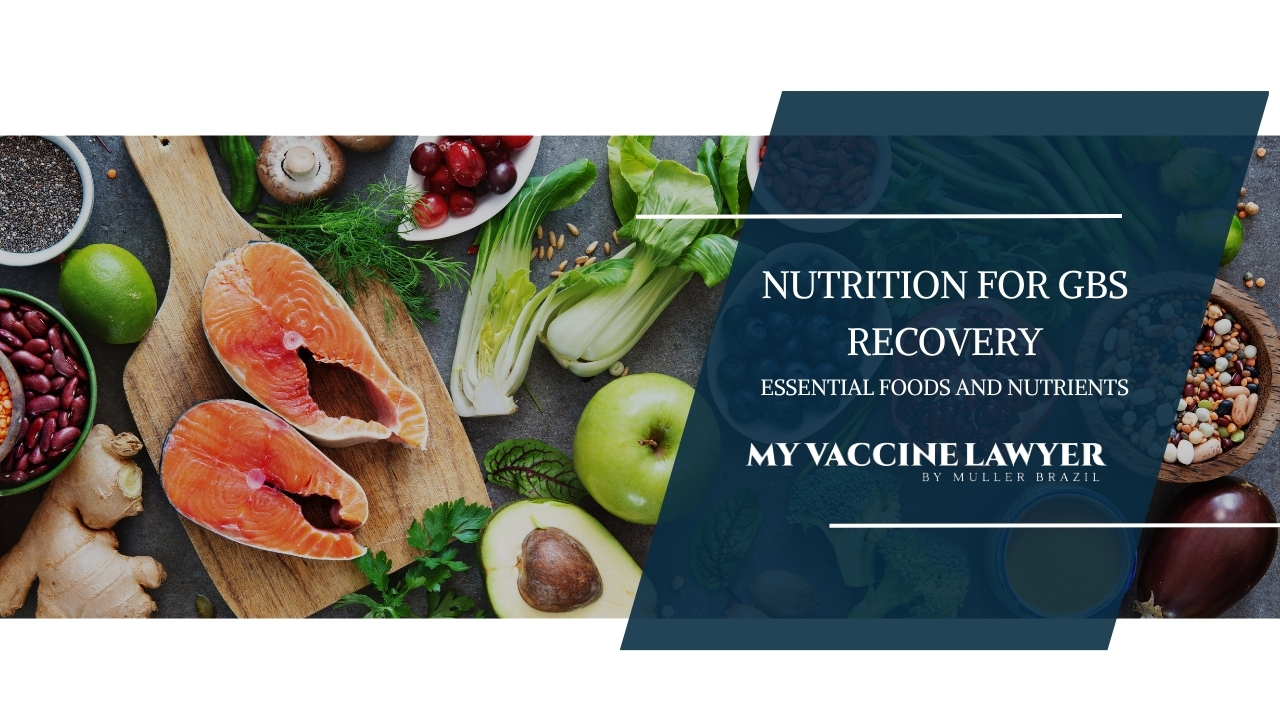Guillain-Barré Syndrome in Children: Symptoms & Treatment
If your child suddenly feels weak or has trouble moving, they might have Guillain-Barre Syndrome (GBS), a serious nerve condition. Catching this...
8 min read
Vaccine Injury Law Resources / Vaccines / Guillain-Barre Syndrome: Top Diet Strategies for Recovery
 Paul Brazil
:
Jan 25, 2024 12:00:00 PM
Paul Brazil
:
Jan 25, 2024 12:00:00 PM
What dietary choices help recovery from Guillain-Barre Syndrome? This question is important for patients and caregivers alike.
Diet can affect recovery from Guillain-Barre Syndrome (GBS). Foods that help heal nerves, reduce swelling, and strengthen the immune system are good choices. While there isn't a special diet for GBS, it's best to avoid foods high in saturated fats and sugars.
These can make inflammation worse and increase symptoms. Try to stay away from processed foods, fried items, sugary snacks, and high-fat dairy products. Eating healthy foods helps support faster and easier recovery.
Personalizing a diet to the unique needs of GBS patients plays a key role in managing this condition. The truth is, there is no one-size-fits-all diet suitable for all individuals with GBS. Patients may exhibit varied food sensitivities or intolerances, and a personalized dietary approach can cater to the distinct requirements of each patient, thereby helping in their management and recovery from GBS, especially during the acute phase.
Understanding that different forms of Guillain-Barre Syndrome influence custom dietary strategies is vital. Some of these forms include:
By understanding these variants, you can make a dietary plan that matches the individual patient’s condition.
Furthermore, maintaining a balanced diet significantly influences symptom severity, including mild symptoms. It can:
GBS patients require a high-energy, high-protein diet to support their recovery journey. This diet not only helps in maintaining healthy blood pressure levels but also helps in preventing muscle wasting. Sulfur-containing vegetables like Brussels sprouts, broccoli, cabbage, kale, and nutrient-rich options like sweet potatoes contribute to shielding against nerve damage and helping nerve repair.
In addition to a well-rounded diet, adding bone broth to their meal plan provides numerous benefits for GBS patients. Some of the benefits of bone broth for GBS patients include:
We will now explore further the pivotal nutrients for nerve repair and addressing muscle weakness, as well as muscle strength, and compare the role of whole foods and supplements in providing these nutrients.
The peripheral nervous system (PNS), comprised of the nerves beyond your brain and spinal cord, plays a significant part in Guillain-Barre Syndrome. Therefore, supporting its health and recovery is vital. Nutrients such as:
are essential for peripheral nerve health and recovery, and can also help in preventing complications like respiratory failure.
Foods known to assist in Guillain-Barre Syndrome recovery include:
Interestingly, one such powerhouse food beneficial for PNS health is sweet potatoes, which are nutrient-dense and packed with antioxidants, making them an excellent addition to the GBS diet.
Despite supplements being a source of essential nutrients, whole foods usually offer nutrients that are absorbed more effectively and have a heightened bioavailability. This is particularly important when symptoms begin, as the body needs optimal nutrition to support recovery.
Whole foods like flax seeds, green leafy vegetables, and sea vegetables are advantageous for GBS patients and may help prevent deep vein thrombosis. Moreover, acquiring nutrients from whole foods improves their immune system and helps recovery.
A diet rich in foods like bone broth, fermented foods, leafy vegetables, fruits, whole-grain breads, low-fat dairy products, beans, lean meats, and fish can address risk factors associated with GBS.
As inflammation is a common symptom of GBS, including anti-inflammatory foods in the diet significantly supports the recovery process. Some examples of anti-inflammatory foods to include in your diet are:
These foods are known to help reduce inflammation and may support GBS recovery.
Antioxidants are important in supporting the recovery from Guillain-Barre Syndrome. They help in reducing oxidative stress and inflammation, which are detrimental during GBS. Therefore, it’s beneficial to include antioxidant-rich fruits and vegetables in your diet, such as:
One such potent source of antioxidants is green tea, which provides EGCG, a powerful natural antioxidant known for its potential to slow down the immune response. This helps prevent additional damage to the body during GBS.
Each individual is distinctive, and their response to food varies. Some GBS patients may show food sensitivities to:
It’s important to be aware of these sensitivities and manage them to avoid exacerbating symptoms and hindering recovery.
Eliminating certain foods, including red meat, fats, sugar, alcohol, processed meats, highly processed or refined foods, and added sugars, has the potential to support the recovery from Guillain-Barre Syndrome. The inclusion of lean poultry, fish, lentils, pulses, beans, bone broth, fermented foods, and leafy vegetables improves the immune system and helps the healing process.
Like any disease, managing Guillain-Barre Syndrome involves dodging certain dietary pitfalls. Some foods to avoid include:
These foods have the potential to worsen GBS symptoms.
The consumption of highly processed foods, refined cereals, bread, and pasta must be avoided as these items are rich in sodium and sugar and may worsen the symptoms of the condition. Especially when the first symptoms begin, it’s crucial to replace these with nutrient-dense whole foods to support the body’s recovery process.
GBS patients should prioritize fresh fruits and vegetables, whole grain or whole wheat alternatives. Including items such as vegetables, bone broth, green tea, and fermented foods into their dietary regimen can enhance the recovery process.
The gut microbiome is key in general health and recovery from GBS. A healthy gut microbiome is essential for regulating immune homeostasis and providing health benefits to the host. Various factors, such as diet, especially a high-fiber diet, impact the health of the gut microbiome.
The incorporation of fermented foods such as kimchi offers potential benefits for GBS patients. These foods are known for their probiotic properties, which help maintain a healthy gut microbiome and support the immune response.
In managing Guillain Barre Syndrome, it’s important to adapt your diet to boost immune system health. Here are some foods to incorporate into your diet:
These foods improve the immune system and aid in the healing process.
Accommodating personal food preferences can be achieved by identifying nutritious substitutes that match the prescribed dietary guidelines for Guillain Barre Syndrome. Some enjoyable choices to consider include:
Including these options helps guarantee that the diet is beneficial and fulfilling.
The CIDP diet concept, focusing on personalizing diet plans to cater to individual needs and preferences, is relevant to GBS. It emphasizes the importance of modifying diets to bolster immune system health, especially for those managing Guillain-Barre Syndrome. Now, let’s dive into the details of mindful eating practices and the benefits of working with a nutritionist.
Mindful eating is a conscious practice involving full attention to the process of eating and its associated sensations. This approach has the potential to improve general well-being and allow more deliberate food choices, thereby helping in the recovery from Guillain-Barre Syndrome.
Patients with Guillain-Barre Syndrome can engage in mindful eating by using the following techniques:
These practices promote a healthy approach to food and improve digestion and nutrient absorption, which are essential for nerve repair and muscle strength.
A customized diet plan is vital for GBS patients as it boosts the immune system and supports the healing process by including specific beneficial foods, such as bone broth, fermented foods, and leafy vegetables, specialized for individual needs.
Working with a nutritionist is highly beneficial in this regard. A nutritionist can provide guidance on balanced diets that support the nervous and immune systems, recommend specific foods, and suggest a high-energy and protein diet to mitigate muscle wasting and facilitate recovery.
Take Control of Your Injury Today
In managing Guillain-Barre Syndrome, combining a balanced diet with medical treatments improves the chances of successful recovery. Immunotherapy, specifically plasmapheresis (PE) and intravenous immunoglobulin (IVIg), are key in the treatment of GBS, with both treatments demonstrating equal efficacy.
A balanced diet, incorporating immunity-boosting foods such as bone broth, fermented foods, and leafy vegetables, plays a significant role in supporting the immune system. This nutritionally supportive environment increases the effects of immunotherapy treatments for GBS patients.
Integrating dietary modifications with medical treatments such as PE and IVIg can lead to lower mortality rates, shorter hospital stays, earlier stoppage of mechanical ventilation, and improved overall outcomes for Guillain-Barre Syndrome patients during their recovery.
Nothing shows the impact of dietary interventions on GBS recovery more effectively than a success story. Cases such as Brianne Tracy, who was diagnosed with Guillain-Barré Syndrome at 23, and testimonials featured on the GBS-CIDP Foundation International website demonstrate how dietary interventions have played a huge role in personal successes.
These instances serve as inspiring tales of patients who have experienced notable improvements by making changes to their nutrition. Reports of successful recovery often highlight dietary modifications such as increased consumption of bone broth, fermented foods, and leafy vegetables, along with the avoidance of highly processed foods, refined foods, and added sugars. These adjustments are thought to improve the immune system and support nerve regeneration.
Although diet is a key aspect of managing GBS, other lifestyle elements like exercise, stress management, and sleep hygiene also have a significant contribution to overall health and recovery. Exercise and physical therapy are essential components in the recovery process for individuals with Guillain-Barré syndrome.
Moreover, managing stress is equally important in GBS management as it contributes to the improvement of both physical and psychiatric recovery, reducing anxiety and depression, and the overall recovery process. Techniques such as supportive psychotherapy, regular physical exercise, and maintaining a strong support system of friends and family are beneficial.
Lastly, maintaining proper sleep hygiene contributes to the recovery of Guillain-Barre Syndrome by allowing proper rest. This helps increase the body’s resilience against physical, psychological, and social challenges.
Recovering from Guillain-Barre Syndrome is not easy, but it’s a process that is significantly influenced by the dietary and lifestyle choices we make. By incorporating a balanced diet rich in nutrients essential for nerve repair and muscle strength, identifying and managing food sensitivities, steering clear of dietary pitfalls, and maintaining a healthy gut microbiome, we can support our bodies in the recovery process.
Moreover, the importance of personalizing our diet for GBS, practicing mindful eating, working with a nutritionist, understanding the synergy of diet and medical treatments, and making necessary lifestyle adjustments beyond diet cannot be overstated. The right dietary and lifestyle strategies make recovery from Guillain-Barre Syndrome possible. Let these insights serve as a key to unlocking your path to recovery and nourishing your journey ahead.
Plasma exchange and immunoglobulin therapy are two treatments that can help speed up recovery and reduce the severity of Guillain Barre. Consider discussing these options with your healthcare provider to determine the best course of action for your specific situation.
A bacterial or viral illness, such as flu, or an infection of the digestive system, like food poisoning, typically triggers Guillain-Barré syndrome. In some cases, it may also occur after an infection with the Zika virus or COVID-19.
People with Guillain-Barré syndrome should try to avoid processed foods, sugary snacks, and unhealthy fats while healing.
Symptoms of Guillain-Barré syndrome typically begin with weakness or tingling in the legs, which can spread to the upper body. In severe cases, this may lead to muscle weakness or paralysis that requires medical treatment. Guillain-Barré syndrome recovery can be lengthy and may involve residual weakness.
A customized dietary approach is crucial for GBS patients as it helps meet their specific needs, supporting their management and recovery, particularly during the acute phase.
Paul Brazil is a native of Dunmore, Pennsylvania and a graduate of Dunmore High School. For his undergraduate education, he attended Bloomsburg University where he majored in political science. He then went on to earn his JD from Widener University School of Law. Following graduation from law school, Mr. Brazil worked at a large Philadelphia civil defense firm where he litigated workers’ compensation claims and Heart and Lung Act cases. In 2012, he joined with his coworker Max Muller to form Muller Brazil.

If your child suddenly feels weak or has trouble moving, they might have Guillain-Barre Syndrome (GBS), a serious nerve condition. Catching this...

Having the intravenous immunoglobulin (IVIG) therapy helps people with Guillain-Barre Syndrome ("GBS") and Chronic Inflammatory Demyelinating...

In this blog post, we will dive into the various types of vaccine injection site reactions, their symptoms, treatment and how to prevent and manage...
